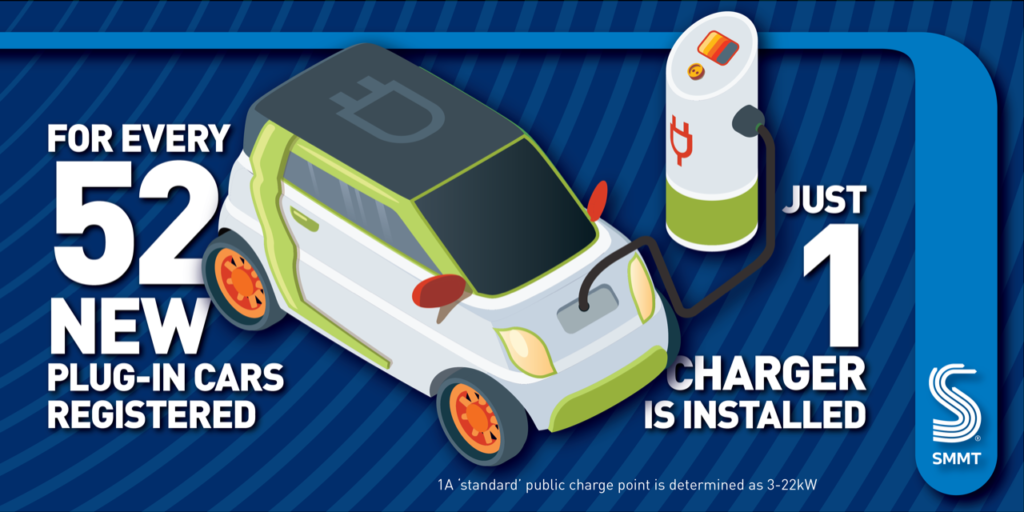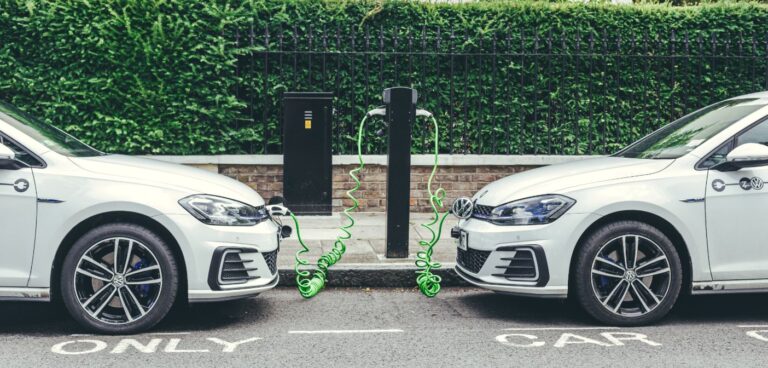New analysis by the Society of Motor Manufacturers and Traders (SMMT) has revealed that the ratio of vehicle chargepoints to plug-in cars deteriorated by 31% during 2020.
The research shows that at the end of 2019, 11 plug-in vehicles potentially shared a standard public chargepoint capable of charging both battery electric (BEVs) and plug-in hybrid vehicles (PHEVs). In contrast, at the end of 2020, the ratio had fallen to one charger for every 16 plug-ins.
SMMT said plug-in vehicles continue to grow in popularity, accounting for around one in every six new cars registered in 2021, and the public charging infrastructure required to keep them moving must keep pace with the accelerating vehicle uptake. However, its latest figures revealed that public chargepoint rollout is lagging behind.
Mike Hawes, SMMT Chief Executive, said, “Appetite for electric vehicles has never been higher, but making Britain a net zero nation means convincing everyone, wherever they live, that an electric car can meet their needs.
“Those who can’t have their own home charge point need the confidence that they can still charge as conveniently as they can refuel. A deteriorating ratio of public charge points to cars will drain that confidence. “
Furthermore, the SMMT figures showed there was 4,109 new standard public charge points installed between January and September 2021, compared with 212,181 new plug-in car registrations. This equates to one new standard charger being installed for every 52 new electric cars, a rate insufficient to improve the user experience added SMMT.

There are also regional disparities in the current provision of standard public charging points. London has the best ratio of cars to chargers at 10:1 – although this in itself fell from 5:1 in 2019. Meanwhile, the East of England has the lowest availability, with just one standard public charger for every 49 plug-in vehicles.
Meanwhile, Wales beats the national average with a ratio of 12:1, while Scotland weighs in at 17:1. SMMT said if not addressed, these disparities will hamstring vast sections of the country in their ability to deliver zero emission motoring with all the air quality and carbon saving benefits this delivers, not to mention the benefits drivers can enjoy via lower EV running costs.
Investments are being made in public charging with the government’s Rapid Charging Fund allocating £950m to rapid and ultra-rapid chargepoints, £620m for zero-emission vehicle grants and infrastructure announced in the Net Zero Strategy, and a commitment that all new build homes will include an EV charging point.
However, SMMT called this investment “insufficient”. Hawes added: “Recent government funding for infrastructure was welcome but more private sector investment in public charge points is needed across the country.
“The UK therefore needs a framework of regulation that makes it easier to fund, build and operate electric vehicle charging infrastructure. Consequently, we need commensurate and binding targets for charge point rollout and reliability so that all those without a driveway or designated parking can be confident of finding a convenient charger, and one that works.”





